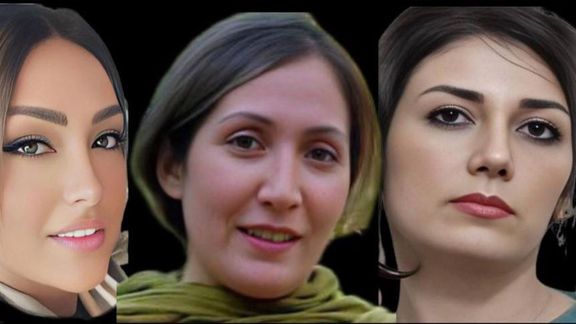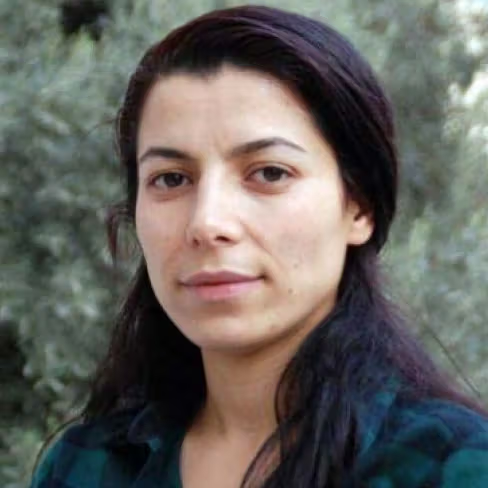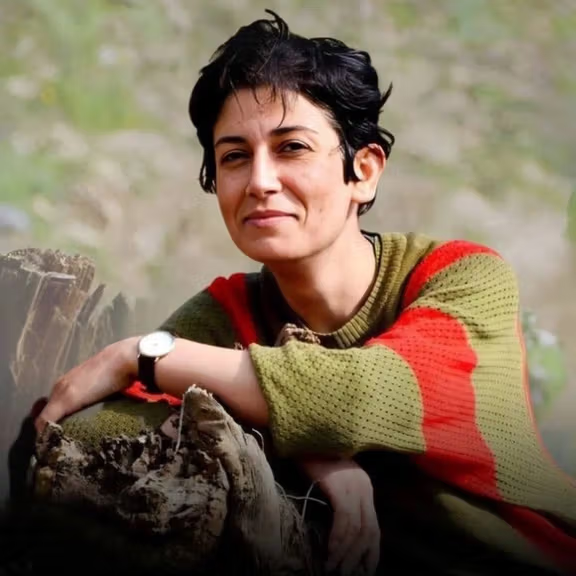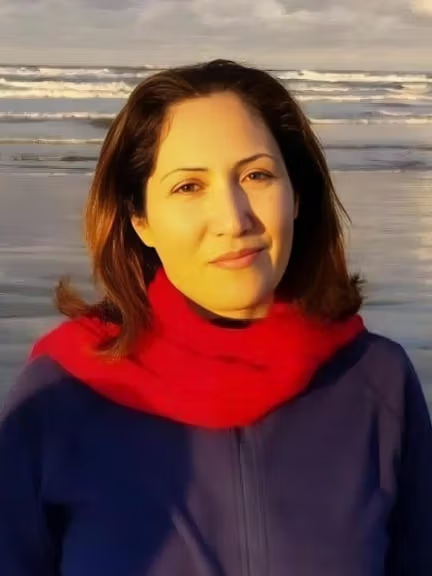Four Iranian women accused of 'armed rebellion' at risk of execution

Iranian authorities have accused four women of "armed rebellion", a sentence carrying the death penalty, as the country's execution spree continues.

Iranian authorities have accused four women of "armed rebellion", a sentence carrying the death penalty, as the country's execution spree continues.
The four women have been identified as Pakhshan Azizi, Sharifeh Mohammadi, Varisheh Moradi, and Nasim Gholami Simiyari.
While Azizi and Mohammadi have received a death sentence in recent weeks, the verdicts for Moradi and Simiyari are pending. However, given the armed rebellion charges they face, activists have warned that they could be at high risk of execution.
Article 287 of the Islamic Penal Code states that any group taking up arms against the Islamic Republic is considered a rebel and "its members shall be sentenced to death.”
Rights groups, activists, and Evin Prison inmates have condemned the authorities' actions, sparking widespread protests on social media and from human rights organizations against the Islamic Republic's harsh treatment of female activists.
Varisheh Moradi

Accordin to Iran International sources, the second court session for Varisheh Moradi on the charge of "armed rebellion" is scheduled for August 4 at Tehran’s Islamic Revolution Court, presided over by Judge Abolqasem Salavati.
This date was set without allowing her lawyers access to review her case. During her first court session on June 13, Salavati, infamously known as the "Judge of Death" for his severe human rights violations and death sentences on dubious charges, did not permit Moradi's lawyers to defend her.
Nasim Gholami Simiyari

On Saturday, a court session was held for Nasim Gholami Simiyari, a protester of Iran’s 2022 nationwide "Woman Life Freedom" uprising, on the charge of "armed rebellion" in a joint case.
The session took place at Branch 26 of the Tehran Revolutionary Court, presided over by Judge Iman Afshari, notorious for human rights violations. Afshari was sanctioned by the UK in 2022 for being "involved in the commission of serious human rights violations in Iran, namely being responsible for serious violations with respect to the right to a fair trial and the right to freedom of expression of political protesters."
Simiyari is currently detained at Tehran’s Evin prison and awaits a verdict. She was arrested on May 18, 2023, by IRGC intelligence agents in Tehran. Initially held in solitary confinement in Ward 1A, she was interrogated before being moved to the notorious Ward 2A and finally to the women's ward of Evin Prison on September 26, 2023.
After five months, she was charged with "assembly and collusion against national security," "propaganda against the regime," and "armed rebellion" in a joint case. US-based Human Rights Activists News Agency (HRANA) citing Gholami Simiyari’s friend reported that she endured psychological and physical torture, resulting in forced confessions recorded on camera under duress.
Pakhshan Azizi

Political prisoner, Pakhshan Azizi was sentenced to death and an additional four years in prison on charges of "armed rebellion." The verdict was handed down by Judge Afshari of Branch 26 of the Tehran Revolutionary Court, with her lawyers being informed of the judgment on July 23.
On Saturday, Norway-based Iran Human Rights urged the International community to demand charges against Pakhshan and all others detained for their peaceful civil activities to be dropped.
“Pakhshan Azizi’s death sentence has no legal basis and was issued by the Islamic Republic’s non-independent judicial system at the behest of the security forces in order to suppress civil movement. The international community must react to her sentence in the strongest terms,” Iran Human Rights Director, Mahmood Amiry-Moghaddam said in a statement.
Sixty female political prisoners at Tehran’s Evin Prison staged an overnight sit-in on Wednesday to protest against Azizi’s death sentence.
The Instagram accounts of Nobel Laureate Narges Mohammadi, Iranian civil rights activist Golrokh Iraee, and German-Iranian rights activist Nahid Taghavi jointly announced that Evin's women unanimously demand the annulment of the Iranian-Kurdish political prisoner's death sentence.
Sharifeh Mohammadi

Labor activist Sharifeh Mohammadi was sentenced to death in early July on charges of "armed rebellion" by Judge Ahmad Darvish Goftar of Branch 1 of the Revolutionary Court of Rasht.
The Campaign to Defend Mohammadi stated on Instagram that the sentence is "based on the pretext of Mohammadi's membership in an independent, public, and legal labor organization a decade ago, demonstrating the baselessness of the verdict."
Rights groups and activists have been campaigning against Mohammadi’s death sentence since it was issued in July.
Last year, 834 prisoners were executed in Iran, including at least 22 women, marking the highest number since 2014, according to Iran Human Rights, making Iran the world's leading executioner of women.